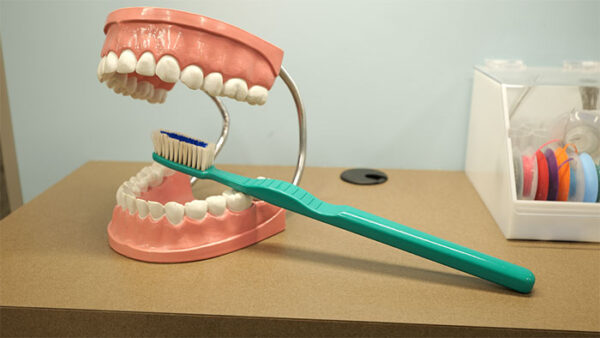How Often Should I Brush Teeth After Eating? Daily Tips

The age-old question of oral hygiene: how often should you brush your teeth after eating? The answer may seem straightforward, but the reality is that it depends on various factors, including the type of food you’ve consumed, your personal oral health needs, and your overall lifestyle. In this article, we’ll delve into the world of oral hygiene, exploring the importance of brushing your teeth, the impact of different foods on your teeth, and providing you with practical daily tips to maintain a healthy, sparkling smile.
The Importance of Brushing Your Teeth
Brushing your teeth is one of the most effective ways to remove plaque, a sticky film of bacteria, from your teeth. Plaque can lead to tooth decay, gum disease, and even heart problems if left unchecked. The American Dental Association (ADA) recommends brushing your teeth at least twice a day, in the morning and before going to bed, for two minutes each time. However, this may not be enough, especially if you’ve consumed certain foods or drinks that can damage your teeth.
The Impact of Food on Your Teeth
Different foods have varying effects on your teeth. Sugary and acidic foods, such as candy, soda, and citrus fruits, can be particularly harmful, as they can contribute to tooth decay and erosion. On the other hand, crunchy fruits and vegetables, like apples and carrots, can help clean your teeth naturally. It’s essential to consider the type of food you’ve eaten when deciding how often to brush your teeth.
Daily Tips for Brushing Your Teeth
Here are some practical daily tips to help you maintain good oral hygiene:
- Brush your teeth after breakfast: Start your day by brushing your teeth after breakfast to remove any plaque and bacteria that may have accumulated overnight.
- Brush your teeth after consuming sugary or acidic foods: If you’ve eaten sugary or acidic foods, brush your teeth as soon as possible to prevent damage.
- Brush your teeth before bed: Brushing your teeth before bed is crucial to remove any food particles and plaque that may have accumulated throughout the day.
- Use a fluoride toothpaste: Fluoride toothpaste can help strengthen your teeth and prevent decay.
- Don’t overbrush: While it’s essential to brush your teeth regularly, overbrushing can damage your gums and tooth enamel. Limit your brushing to two to three times a day.
Additional Tips for a Healthy Smile
In addition to brushing your teeth, there are several other ways to maintain good oral hygiene:
- Floss daily: Flossing can help remove food particles and plaque from between your teeth and under your gumline.
- Use an antibacterial mouthwash: Mouthwash can help kill bacteria and freshen your breath.
- Visit your dentist regularly: Regular dental check-ups can help identify any oral health problems early on and prevent more severe issues from developing.
Conclusion
Brushing your teeth is an essential part of maintaining good oral hygiene. While the ADA recommends brushing your teeth at least twice a day, you may need to brush more frequently, depending on your diet and lifestyle. By following these daily tips and considering the type of food you’ve eaten, you can help keep your teeth healthy and strong. Remember, a healthy smile is just a brush away!
How often should I brush my teeth if I have braces?
+If you have braces, it's essential to brush your teeth more frequently, ideally after every meal, to prevent food from getting stuck in your braces and causing damage to your teeth.
Can I use a toothbrush with hard bristles to remove plaque?
+No, using a toothbrush with hard bristles can damage your gums and tooth enamel. Instead, opt for a toothbrush with soft bristles and gentle strokes to remove plaque effectively.
How long should I brush my teeth for?
+Brush your teeth for at least two minutes, twice a day, to ensure you're removing all the plaque and bacteria from your teeth.
By following these tips and maintaining good oral hygiene, you can enjoy a healthy, beautiful smile for years to come. Remember to always consult with your dentist for personalized advice on how to care for your teeth.
